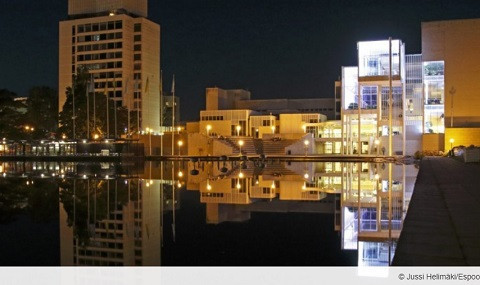
GCED Basic Search Form
Quick Search
현재 위치
뉴스

Sustainable development is the leading paradigm for learning city advancement in Espoo, Finland, one of the first UNESCO Global Network of Learning Cities (GNLC) members to be given a UNESCO Learning City Award, which it received in 2015. A key to the city’s success is a strong focus on Education for Sustainable Development (ESD). On 21 February 2021, Espoo shared its achievements with members of the UNESCO GNLC ESD Cluster. Officials from around 50 cities and representatives of the UNESCO Institute for Lifelong Learning (UIL) also participated in the event.
ESD: A job for all
One of Espoo’s learning city goals is to empower its citizens to work towards a sustainable future by mainstreaming ESD through development programmes such as Sustainable Espoo and Participatory Espoo. Mr Markku Markkula, Chair of the Espoo City Board, presented the Espoo Story, which outlined the city’s strategy to involve its citizens, learning institutions, NGOs, private enterprises and research institutions in building a sustainable learning city together. Next, Deputy Mayor Mr Harri Rinta-Aho showcased the cross-cutting role played by ESD in national and local education curricula, and stressed that ‘ESD is not a matter only for education, but a matter for all of us.’ To put its strategic goals into practice, the city has set up cross-sectoral ESD teams and programs, and is mainstreaming a participatory mindset throughout the city.
Empowering youth
A powerful example of citizen engagement in the city is the Espoo Youth Council, which is made up of 40 elected members aged between 13 and 18 who regularly meet with the mayor and other city leaders to discuss issues pertaining to Espoo’s young people. Seventeen-year-old Oscar Smith, Head of Espoo Youth Council’s Sustainable Development Team, stressed the importance of giving young people an opportunity to have their say in decisions that will affect them. Moreover, he emphasized that ‘ESD is much more than classroom teaching’ and shared examples of how the youth council has supported the expansion of contraception policies and objected to budget cuts in education.
The whole city as a learning environment
Ms Annika Forstén, Senior Planning Officer for Espoo Education and Cultural Services, shared some examples of the city’s efforts to engage the local community in ESD. To empower citizens to co-create and feel a sense of ownership over their city, a team of participatory designers at Espoo’s public works department engaged residents in the planning of the city landscape. Recent projects have included, for instance, artwork in subway passages designed with youth groups and a health nature trail planned together with residents and NGOs. Moreover, to inspire a love of nature in even the youngest residents, kindergartens grow fruit and vegetables in urban gardens. The city has also developed an online game, My Espoo 2050, wherein players experience a future affected by climate change to help them understand and work to address environmental challenges.
Culture as a vehicle for ESD
Ms Forstén also shared how appreciation of cultural diversity and of culture’s contribution to sustainable development are promoted in Espoo. Examples include the Culture Call programme, wherein art and cultural professionals visit municipal kindergartens to engage children aged three to five in creative projects, and the activities of the Espoo City Library, which has received international awards for its efforts to provide citizens with the knowledge and skills needed for the future.
Educators about ESD
Educators are of course key actors in fostering ESD. Ms Minna Kokora and Ms Marianne Leppänen, experts on early childhood education, shared how capacity-building for educators in Espoo is provided through a combination of pedagogical leadership, educational support, pedagogical tools and extra resources. Representing the Espoo Adult Education Centre, Ms Saana Karlsson from Espoo Adult Education Centre at Omnia shared how the capacities of adult educators have been elevated through a development project based on an eco-social approach to education by Professor Arto O. Salonen at University of Helsinki. According to the approach, taking care of ecological boundaries and a profound respect for human rights determine the possibilities for economic growth. To raise adult educators’ understanding of eco-social education, joint workshops have been arranged, educational materials have been drafted, and the required competencies of educators has been identified. The Espoo Adult Education Centre now has an exam in sustainable development, sustainability is part of annual staff development discussions, and an interactive platform for sharing experiences has been set up.
A joint learning journey
The UNESCO GNLC ESD Cluster will continue to identify examples of best practice and share them with the network and beyond in order to realize the potential of ESD to become fully integrated into lifelong learning strategies at the urban level.
Further information
UNESCO Global Network of Learning Cities
Video tutorial: Learning cities and Education for Sustainable Development
URL:
